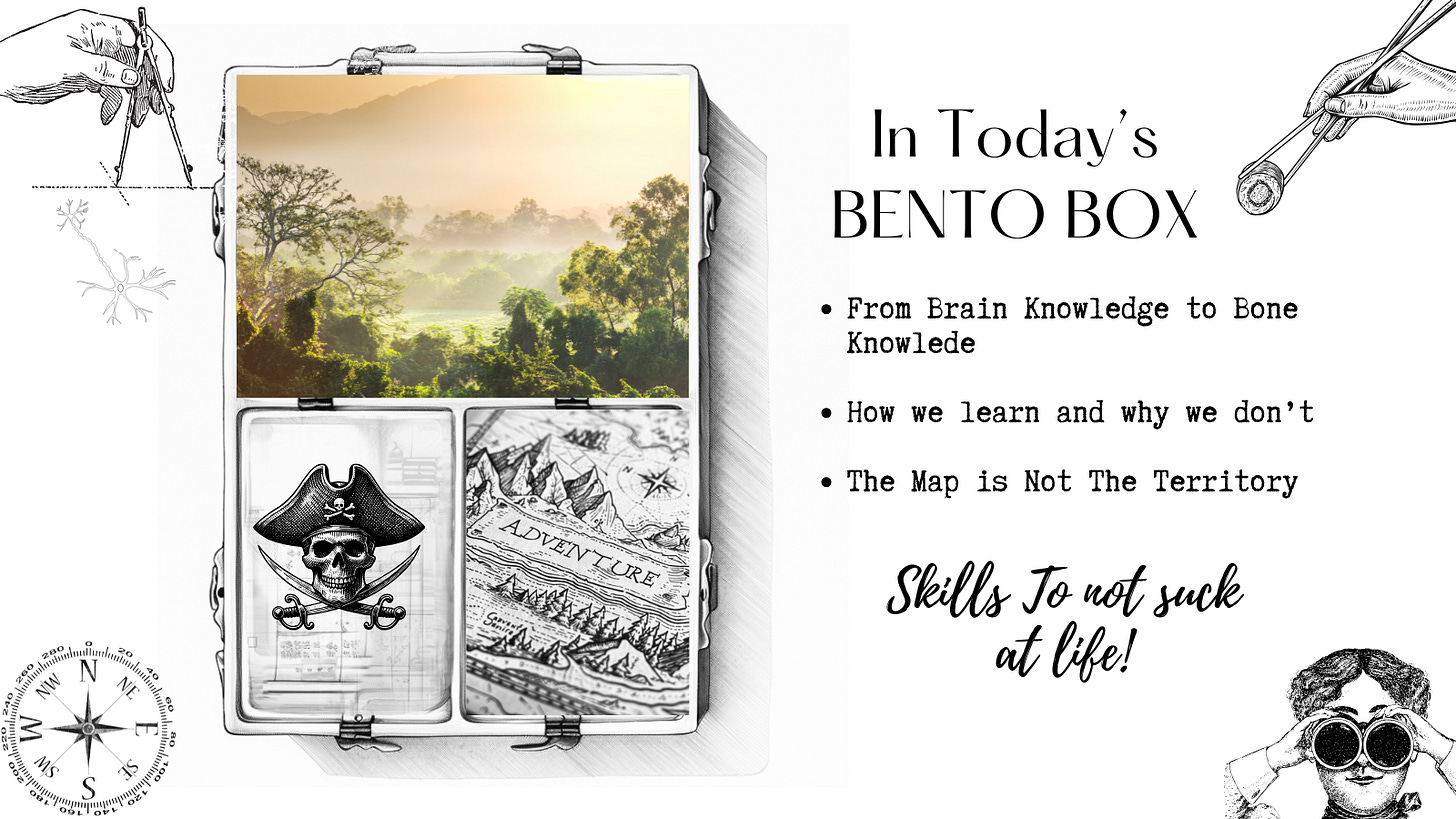We all know we need to adapt. To grow. To become more agile in this rapidly changing world. The advice is everywhere - develop a growth mindset, stretch your comfort zone, learn new skills, become antifragile.
“The illiterate of the 21st century will not be those who cannot read and write, but those who cannot learn, unlearn, and relearn.”
Alvin Toffler, Future Schock
But here's the thing: We're already stretched thin. Mentally. Physically. Emotionally. Often financially. We're drowning in good advice and life hacks, but we only have so much bandwidth. One more "just do this!" feels impossible.
It's a catch-22. We know what we should do, but we rarely have the energy or resources to do it. And let's be honest - humans don't naturally run toward effort and struggle.
Plus, reading about resilience isn't the same as building it.
We can consume all the information in the world, but it won't transfer from our brains to our bones until we actually practice it. Real learning happens when we need it - just-in-time, not just-in-case.
This is where Creative Adventures come in.
A Different Approach
Remember when you were a kid? Learning happened through play, through exploration, through safe spaces to try and fail.
Somewhere along the way, we decided that as adults, we needed to optimize everything. Skip the experience. Get straight to the lessons.
But that's not how deep learning works.
A Creative Adventure is your personal laboratory for growth. Not another self-improvement checklist. Not another thing you "should" do. Instead, think of it as a deliberate experiment in stretching yourself - where the real prize isn't the outcome, but who you become along the way.
What Makes It Different
This isn't about forcing yourself to grind, whether it’s writing a book, building a business, or changing careers.
It's about reframing challenge as exploration. When you approach growth as an adventure rather than a task list, something shifts:
You move from "I have to" to "I get to"
You focus on curiosity instead of obligation
You see setbacks as plot twists, not failures
You value the journey as much as the destination
Why It Works
A Creative Adventure creates the perfect conditions for real growth because:
It's bounded. You're not committing to forever. Pick a timeframe - 3 months, 6 months, one year. Long enough to push past the surface, short enough to stay focused.
It's your laboratory. You discover your actual bottlenecks, not theoretical ones. You see your patterns clearly. Where do you get stuck? What stories do you tell yourself? These insights are gold. Data is the real currency here and the payoff.
Stakes are lower. When you frame it as an experiment, pressure drops. You're not betting your life - you're exploring, learning, growing.
Transfer is built in. The skills you build - resilience, adaptability, problem-solving - naturally transfer to other areas of life.
What It Looks Like
Could be learning to code. Starting a podcast. Writing a novel. Starting a business. Building something with your hands. The medium doesn't matter. What matters is that it:
Stretches you just enough
Interests you genuinely
Creates space for reflection
Allows for regular practice
The goal isn't perfection. It's not even about the final product. It's about who you become through the process: how you show up, and how long you stay in the arena, not on the sidelines.
You might or might not achieve your project's goals. That's not the point. The real value is in:
Learning how you handle challenges
Building your capacity for uncertainty
Expanding what you believe is possible - for you
Every Creative Adventure is a step toward becoming someone who doesn't just cope with change - but learns to surf it.
Skills Lifecycles Shrink
The world isn't getting any simpler. But you don't have to transform overnight. You don't need another "must-do" on your list.
What you need is a space to grow deliberately. To practice being uncomfortable. To expand your possibilities.
Your Creative Adventure is waiting.
What’s yours?



Where's this illustration from? Did you paint it? It's lovely.
I took up ice hockey in my mid fifties with no prior experience. I started with lots of skating lessons. I thought I already knew how to skate. I was wrong. After a couple years I started to take some hockey lessons. I had to watch a YouTube video to figure out how to put on the hockey gear. A year or two later I joined an “Old Timers” league. It’s been hard. Psychologically (constantly fight the desire to be good, to not fail, to not look stupid). Physically (it’s demanding on muscles, joints, & your heart) Mentally (so much to learn). But, sometimes it’s “Hello Ghost Dog” (flow state) and every worry you ever had evaporates and time ceases to exist and you’re instantly 10 years old again, playing outside, with the neighborhood kids, hoping the evening light will last just a little longer so you can just keep playing.